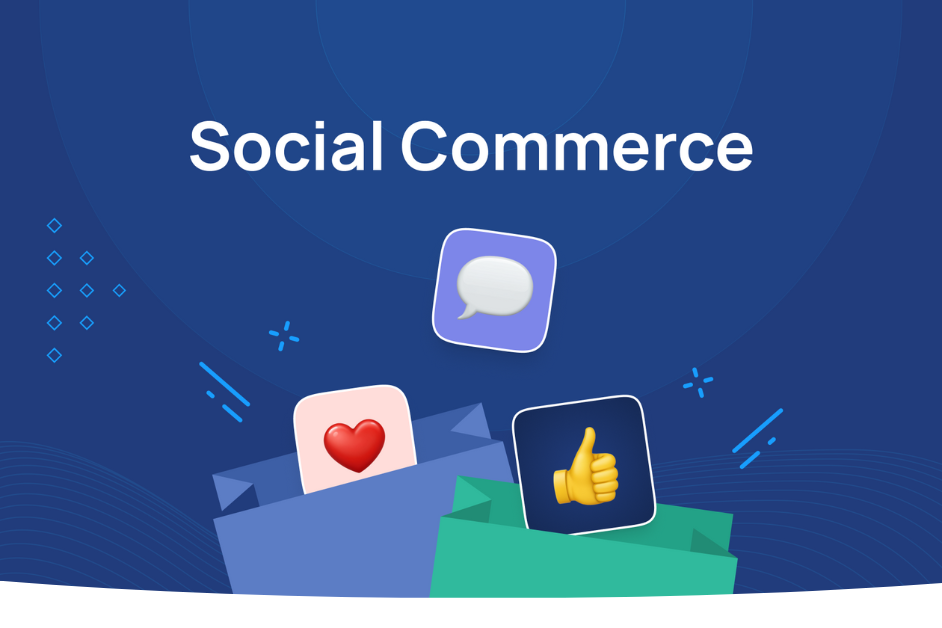In today’s digital landscape, social media has become much more than a platform for casual interactions - it is now a vital tool for eCommerce businesses. Online retailers can utilise social media to engage with customers, provide updates, and foster long-term relationships. This shift in communication methods enables businesses to connect more deeply with their audience, enhance transparency, and build brand loyalty.
Let’s explore how social media can be effectively used in the eCommerce industry for customer engagement, marketing, and brand-building.
Engaging with customers via social media
Maintaining strong customer relationships is essential for eCommerce businesses. Traditionally, companies relied on emails, customer support hotlines, and newsletters to communicate with shoppers. However, social media platforms now allow for real-time, transparent, and more engaging interactions.
Platforms like Instagram, Facebook, and X (formerly Twitter) serve as excellent channels for sharing product updates, offering customer support, and running interactive campaigns. Regularly posting about new product launches, seasonal promotions, and industry trends can help keep customers engaged. Additionally, responding to comments, messages, and reviews fosters a sense of trust and accessibility.
A great example is how major online retailers use social media to provide instant customer service. Many brands use platforms like X and Facebook Messenger to quickly address queries, resolve issues, and build stronger relationships with their shoppers. This proactive approach enhances customer satisfaction and boosts brand reputation.
Using social media for product updates and promotions
Keeping customers informed about new arrivals, special offers, and stock availability is crucial for any eCommerce business. Social media allows companies to provide real-time updates on new collections, flash sales, and limited-time discounts.
For example, Instagram Stories and TikTok videos can showcase new product features, while Facebook and LinkedIn can be used for more in-depth announcements and collaborations. A well-timed X post can quickly communicate a restocking of popular products or announcement of exclusive online deals.
Real-time feedback from social media interactions can also help businesses understand which products are in high demand, what customers are looking for, and how to tailor future offerings. Businesses can use this data to adjust their inventory and marketing strategies if customers frequently ask about specific products or features.
Building strong relationships through social media
Beyond communication and promotions, social media is a powerful tool for building lasting customer loyalty. Unlike traditional advertising, social media encourages two-way interactions, allowing businesses to engage directly with their audience and foster a community around their brand.
Humanising a brand through social media can be particularly beneficial. Showcasing behind-the-scenes content, highlighting customer testimonials, and sharing user-generated content can make a brand more relatable and trustworthy. Posting about company values, sustainability efforts, and team culture also helps customers feel more connected to the business.
Brands like ASOS and Gymshark actively engage with their followers by responding to comments, sharing customer stories, and maintaining a consistent brand voice. By making social media interactions personal and meaningful, businesses can encourage repeat purchases and long-term brand loyalty.
Best practices for effective social media communication
To maximise the benefits of social media for customer engagement and sales, eCommerce businesses should consider the following best practices:
- Choose the Right Platforms: Instagram and TikTok are ideal for visual product showcases, while Facebook and X work well for customer service and announcements.
- Maintain Consistent Updates: Regularly posting about promotions, customer stories, and brand news keeps followers engaged and informed.
- Be Transparent and Authentic: Sharing both successes and challenges fosters trust and shows customers the real people behind the brand.
- Engage Actively: Responding to comments, addressing customer concerns, and running interactive campaigns (e.g., polls, contests) enhances brand engagement.
- Develop a Clear Content Strategy: A well-planned content strategy ensures that social media posts are aligned with business goals, whether that means driving sales, increasing brand awareness, or building a community.
The future of social media in business communication
As social media continues to evolve, its role in eCommerce will only grow. With advanced social listening tools, businesses can better understand customer sentiment, monitor trends, and tailor their marketing strategies accordingly.
Influencer marketing is becoming an increasingly powerful way to reach potential customers. Partnering with social media influencers and industry experts can help brands expand their reach and credibility. AI-powered chatbots and automation tools are also making social media interactions more efficient, allowing businesses to respond to inquiries quickly and enhance customer support.
Summary
For eCommerce businesses, social media is an indispensable tool for engaging with customers, sharing product updates, and building long-term relationships. By leveraging social platforms effectively, companies can enhance transparency, strengthen brand trust, and create meaningful connections with their audience. As social media continues to grow in importance, adopting a strategic approach will help eCommerce brands stay ahead and thrive in the digital marketplace.
<div class="ml-form-embed"
data-account="2253895:i2a9g5f0y9"
data-form="6076190:w7s1t9">
</div>



